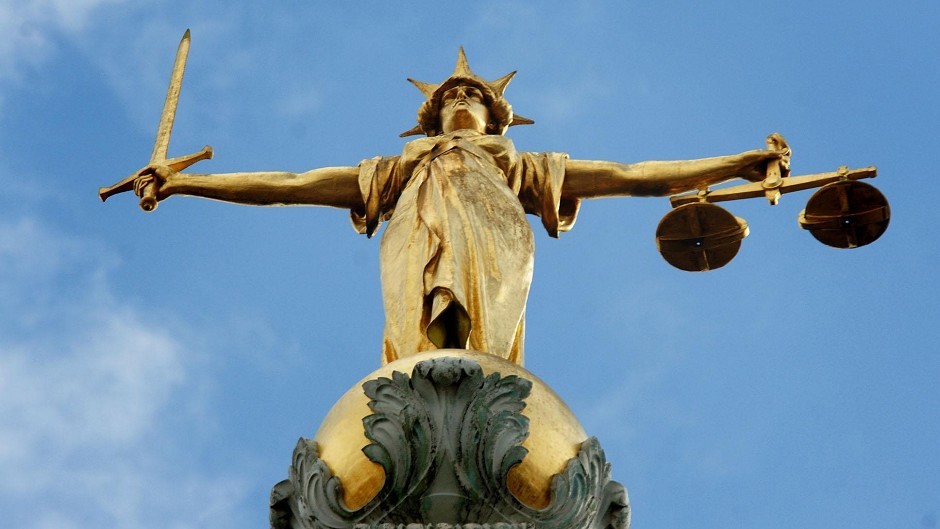A married lawyer who had sex with a vulnerable woman client referred to him by a domestic abuse charity was fined £5000 by a solicitors disciplinary body.
The experienced solicitor was also ordered to pay £250 compensation to his former lover and apologise to the charity which works to end domestic violence against women and children.
The Scottish Solicitors’ Discipline Tribunal found him guilty of professional misconduct and censured him.
It said the unnamed lawyer acted for the woman from around August 27 in 2010 to the beginning of November that year.
It said that he and the woman had “frequent sexual intercourse” at his office, her home and other locations including a hotel in Aberdeen.
The woman had gone to the charitable organisation following matrimonial difficulties. Her husband had been charged by the police over allegations of assault against her. He was later found not guilty after a trial.
During one meeting at the law firm’s office the woman had produced photos of bruising allegedly inflicted by her husband.
The relationship continued after the solicitor, a father-of-two, no longer acted for her. They had met weekly and she gave him a mobile phone, the tribunal heard.
He separated from his wife in June 2011 for a few weeks and then reconciled but the relationship went on.
The consensual sexual relationship went on until about February 2012.
After it finished the woman spoke to his wife which “led to devastation and distress for a number of people”, the tribunal heard. He is now reconciled with his wife again.
During a private hearing, brought after the Law Society of Scotland made a complaint to the tribunal, solicitor advocate Elaine Motion said the relationship started within the lawyer’s office when the woman perceived herself to be the victim of an abusive marriage.
She submitted that a solicitor “should not cross the line” especially with a vulnerable client.
She maintained it was a very serious allegation and that it was important to the profession that it was dealt with severely. She submitted such conduct brought the profession into disrepute.
Solicitor Walter Macreath, who represented the lawyer, said sexual relationships between clients and solicitors did occur. They may be wrong but they did happen. It was however the responsibility of the lawyer not to cross the boundary.
The tribunal said: “The entering into an intimate relationship, meant the respondent (the lawyer) was no longer able to give independent advice free from external influences or personal interests.”
“A solicitor owes his client a duty utmost trust and confidence. It is imperative in order to uphold the reputation of the profession that solicitors adhere to this duty,” it said.
It said the lawyer _ known as Solicitor B _ had shown conduct in continuing to act for a period that was “seriously sufficient and reprehensible so as to amount to professional misconduct”.
It said: “The respondent should have known better and committed a serious error of judgement by continuing to act.”
The tribunal said he was considered to be a trusted advisor by the charity and he abused his position of trust.
“The tribunal consider this to be very damaging to the reputation of the legal profession,” it added.
It took into account that he had been a solicitor for 25 years and had no previous issues. It also noted that he had changed his practices and will no longer meet clients at his office alone at the weekend.
“In the circumstances the tribunal think it is extremely unlikely that the respondent will re-offend. The tribunal accordingly did not consider that the respondent presents a risk to the public and did not consider it necessary to restrict his practising certificate,” it said.
It said that in the “exceptional circumstances” of the case it would make its decision public but would not name the lawyer or other parties.
“The tribunal considers that in this case there has been enough distress caused to all the parties involved and given that Town X is a small town and the matter has already had a high profile in the area, there is a real risk if publicity is given to the findings, including the respondent’s name and location that there would be more publicity which would adversely affect Mrs AA (the woman) and her children and also Org 1 (the charity),” it said.
